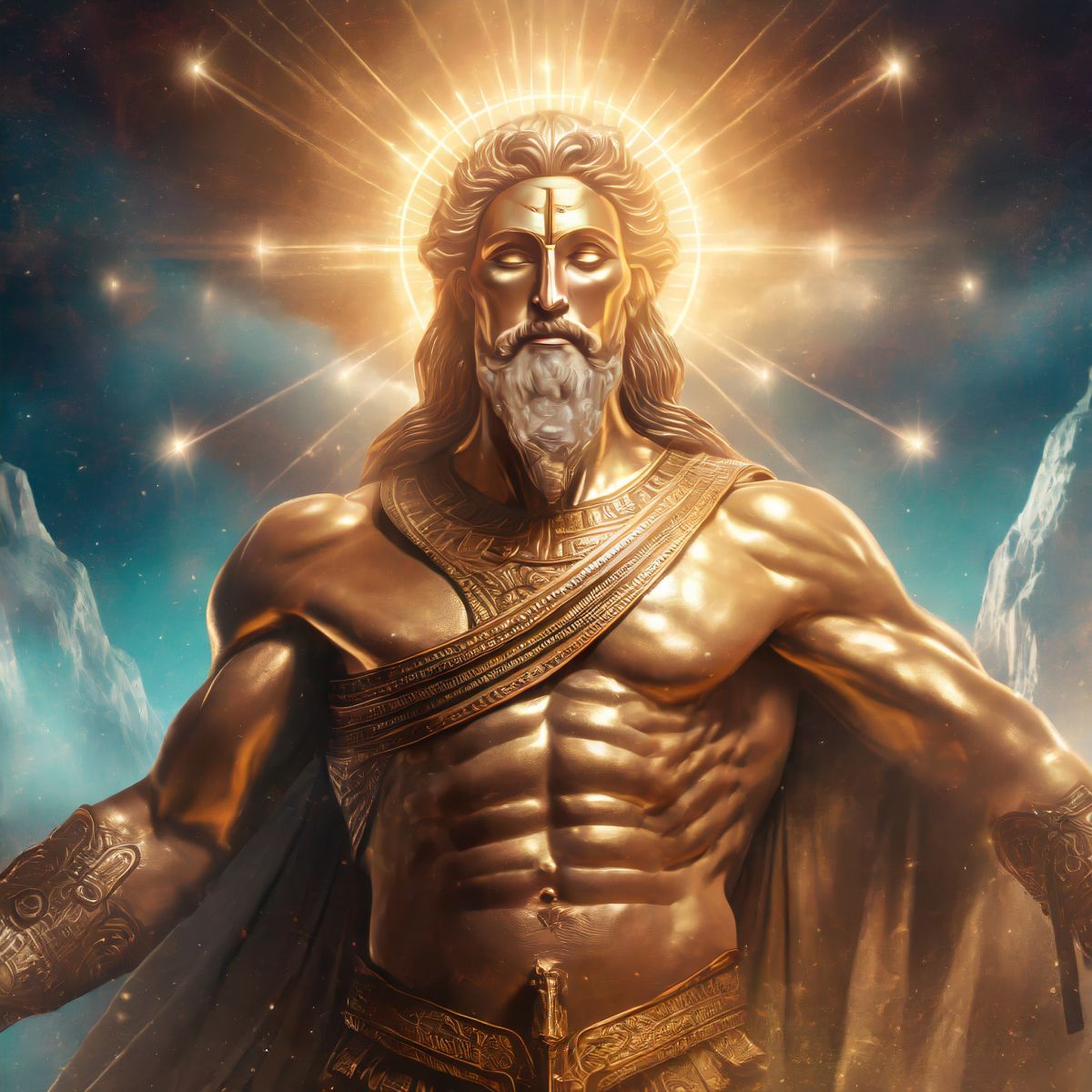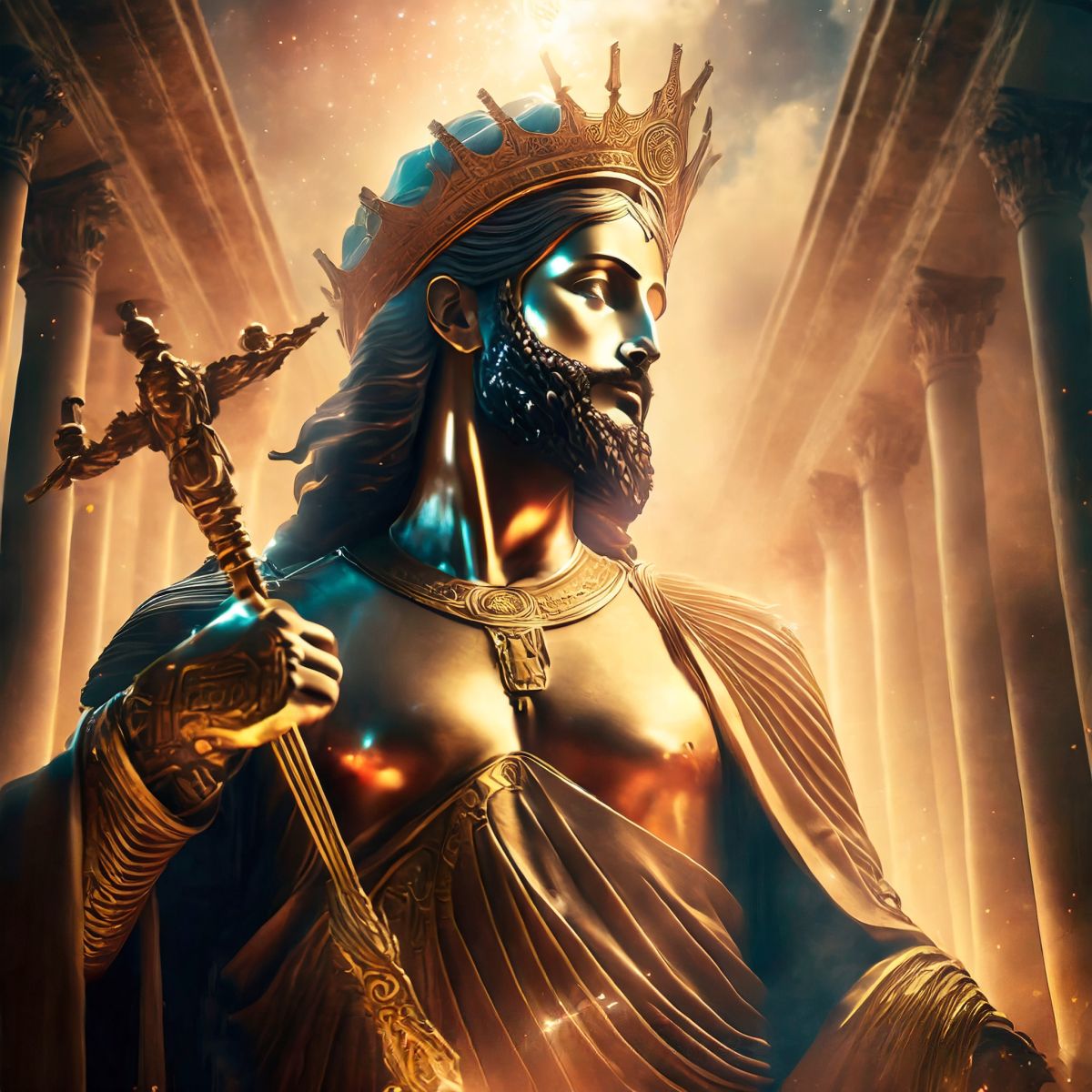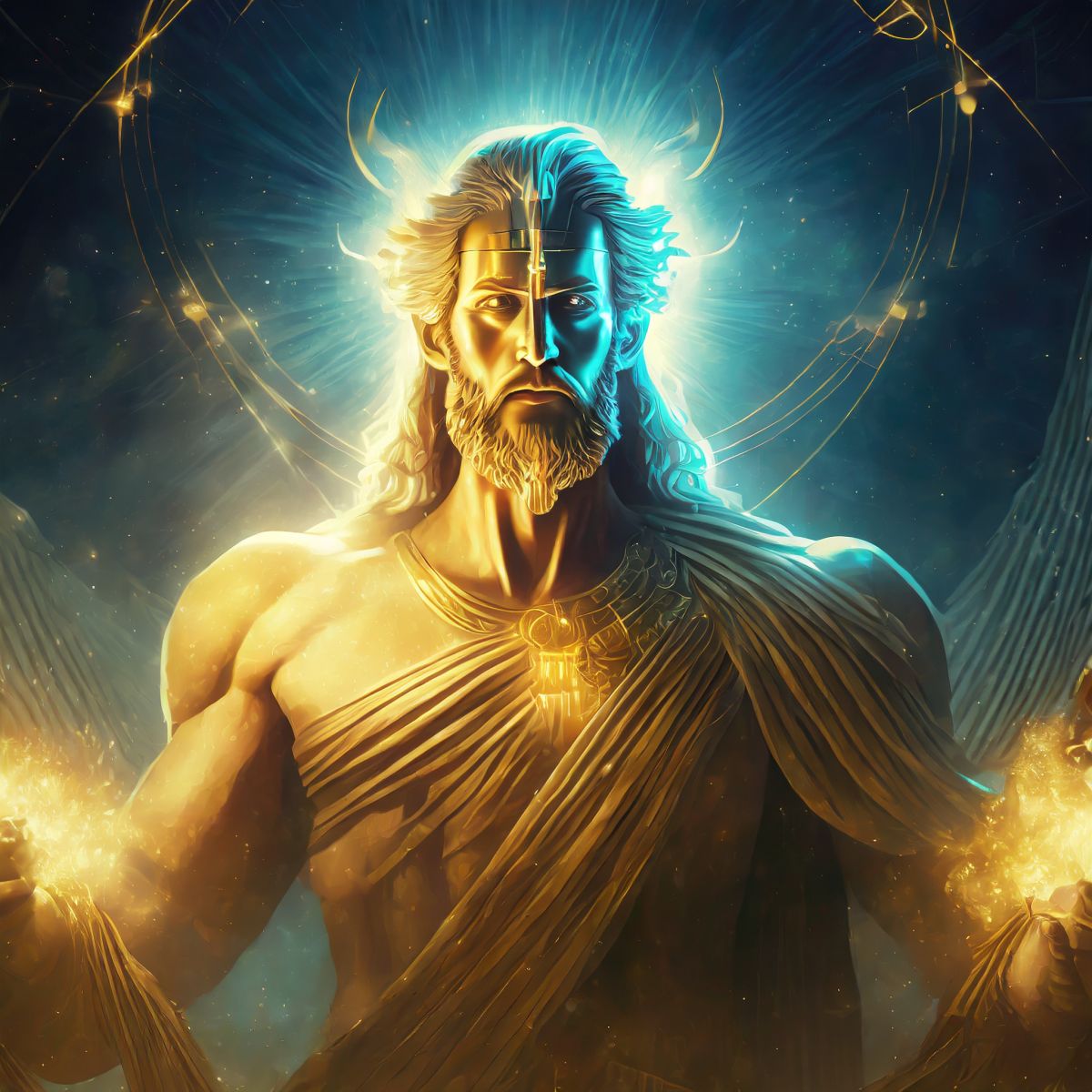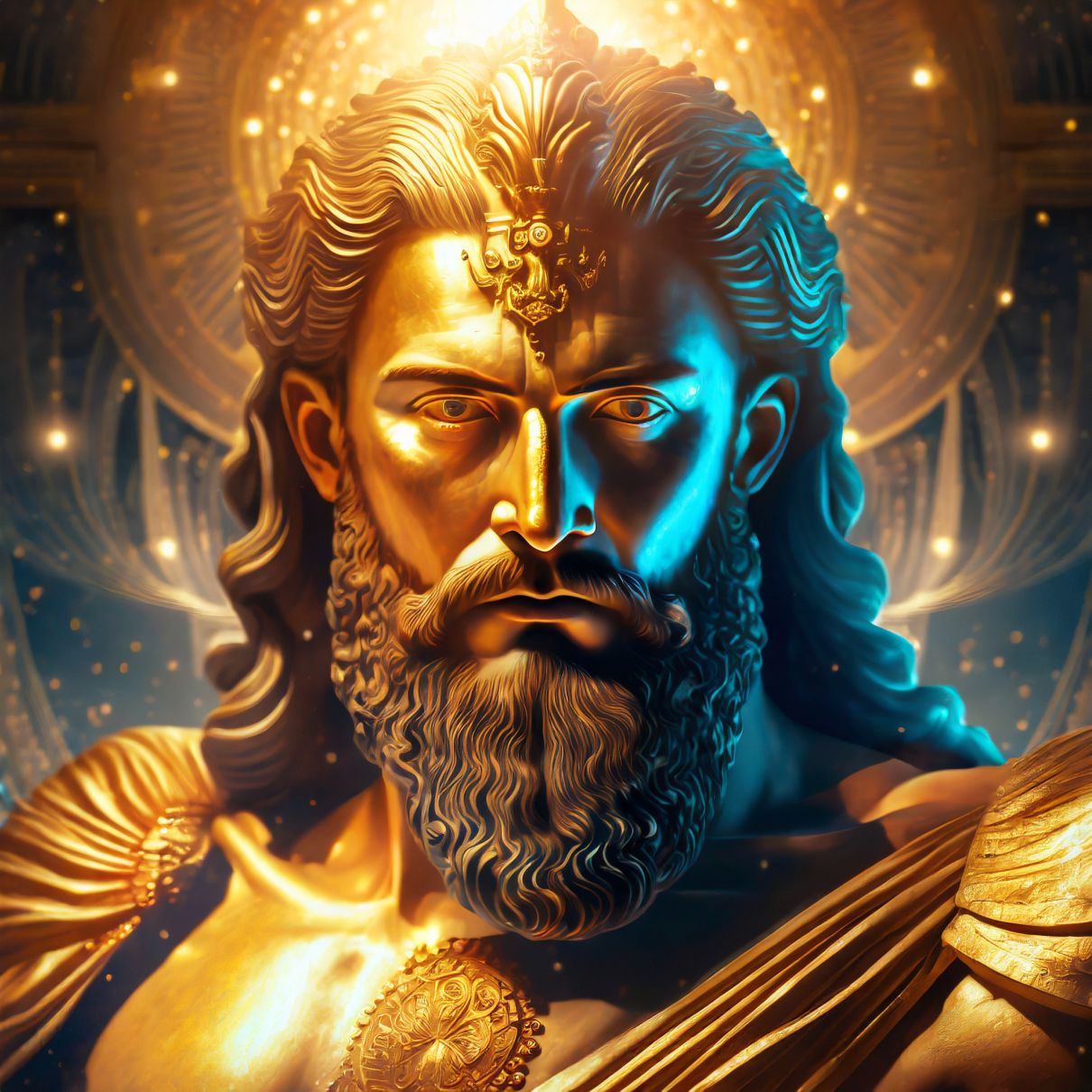
Zeus: King of the Gods

The King of the Gods is a unique deity, combining the attributes and stories of various primary gods from multiple cultures around the world. This universal deity embodies the essence of Zeus, Odin, Amun, and other kingly figures of ancient mythology. The HUD explores the origins, powers, and stories of the King of the Gods, as well as the cultural significance of this remarkable synthesis of ancient deities.
Origins and Mythology
For the Mortals of Earth, The King of the Gods is an amalgamation of the most powerful and influential deities from different cultures. The concept of a universal deity was revealed when archeologists discovered remarkable similarities between primary deities across different civilizations. The King of the Gods is the embodiment of the divine powers that have shaped human history and mythology.
Zeus (Greek Mythology)
In Greek mythology, Zeus is the King of the Gods and Ruler of the Sky, Thunder, Law, Order, and Justice. He is the youngest child of the Titans Cronus and Rhea and is often depicted as a powerful, bearded man wielding a thunderbolt. Zeus is known for his numerous love affairs and the many children he fathered with both Goddesses and Mortal women.
Odin (Norse Mythology)
Odin is the ruler of the Aesir Gods in Norse mythology and is associated with Wisdom, War, Death, and Poetry. He is depicted as a one-eyed, long-bearded man wearing a cloak and a wide-brimmed hat. Odin is known for his quest for knowledge and the sacrifices he made to gain wisdom, including sacrificing one of his eyes and hanging himself from the World Tree for nine days.
Amun (Egyptian Mythology)
Amun is the King of the Gods and the patron deity of the city of Thebes in ancient Egyptian mythology. He is associated with creation, fertility, and the sun. Amun is often depicted as a man with a ram's head or as a ram, symbolizing his fertility and virility. Amun was later merged with the sun God Ra to form the powerful deity Amun-Ra.
Powers and Abilities
The King of the Gods possesses a vast array of powers and abilities derived from the various deities that make up his composite form. These powers include:
-
Control over the weather: As the embodiment of Zeus and his control over the sky, the King of the Gods can summon thunder, lightning, and storms at will.
-
Wisdom and knowledge: Drawing from the wisdom of Odin, the King of the Gods possesses immense knowledge and understanding of the world and its mysteries.
-
Creation and fertility: Amun's influence grants the King of the Gods the power to create life and ensure the fertility of the land.
-
War and battle prowess: The King of the Gods is a skilled warrior, drawing on the martial prowess of various deities such as Odin and Zeus.
-
Shape-shifting: The King of the Gods can change his form, allowing him to interact with mortals and other gods in various guises.
Cultural Significance
Understanding the King of the Gods as a universal deity reflects the interconnectedness of human civilizations and the shared themes and archetypes found in their mythologies. The King of the Gods serves as a reminder of the common threads that run through the diverse tapestry of human culture and the universal human need to understand and explain the world.
In conclusion, the King of the Gods is a fascinating and unique deity, combining the powers, stories, and cultural significance of numerous primary gods from different civilizations. By exploring the origins and powers of the King of the Gods, we gain a deeper understanding of the universal themes and archetypes that have shaped human history and mythology.

HUD




